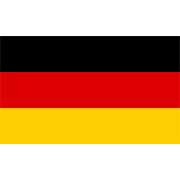Fiscal subject related
To improve efficiency and user experience, the German federal government is merging its two existing B2G (business-to-government) electronic invoicing platforms into a single system. The platform previously known as ZRE will now be fully integrated into OZG-RE, creating one centralized portal for federal e-invoicing.
Since 2018, Germany has operated two separate platforms for receiving electronic invoices at the federal level:
- ZRE: Served the immediate federal administration,
- OZG-RE: Served the indirect federal administration and 5 German states (Länder).
This split was due to differences in how these parts of the administration were funded. However, it created a number of issues:
- Duplicate technical infrastructure and maintenance,
- Higher administrative costs,
- Confusion for suppliers who had to distinguish between different agencies,
- Extra complexity that undermined the benefits of digital invoicing.
In November 2024, the Federal Ministry of Finance and the Federal Ministry of the Interior decided to consolidate both systems into OZG-RE. From now on, OZG-RE will serve all federal agencies, including those that previously used ZRE.
A major migration project is now underway. This involves
- Technically onboarding ZRE recipients onto OZG-RE,
- Connecting OZG-RE with existing systems and workflows,
- Communicating the transition to both public institutions and suppliers.
The migration began on May 23, 2025, with the Purchasing Office of the Bundeswehr as the first agency to switch from ZRE to OZG-RE. Other federal agencies will follow gradually. Suppliers will be informed well in advance of each switch.
Only suppliers using interactive portals or agency-specific platforms need to take action. Those sending invoices via Peppol, a standardized e-invoicing network, don’t need to do anything; the system will automatically route invoices to the correct endpoint once updated in the Peppol network using Dynamic Discovery.
This consolidation corrects a setup that was never based on technical or business needs; it existed only because of a budgetary division in Germany’s federal structure. The merger is long overdue and brings a more streamlined, logical, and cost-effective solution for public sector e-invoicing.
Other news from Germany
Germany: Guidance on Taxpayer Rights and Duties During External Audits
 Germany
Author: Ivana Picajkić
Germany
Author: Ivana Picajkić
A new guidance issued by Germany’s Federal Ministry of Finance, effective 1 January 2025, replaces the 2013 instructions and clarifies taxpayers’ rights and cooperation duties during external tax audits, with the document now required to be attached to audit orders. Taxpayers must support audits by providing records, data access, workspace, and knowledgeable staff, while auditors must identify themselves, respect taxpayer rights, and conduct audits fairly, including in the taxpayer’s favor. Read more
Subscribe to get access to the latest news, documents, webinars and educations.
Already subscriber? Login


Germany: Mandatory e-Invoicing is Coming – 2026 is the Key Preparation Year
 Germany
Author: Ivana Picajkić
Germany
Author: Ivana Picajkić
Germany is fundamentally transforming invoicing by introducing mandatory B2B e-invoicing, requiring companies to receive e-invoices from 2025 and to issue structured, EN 16931-compliant e-invoices from 2027 under the amended German VAT Act. As a result, 2026 is the key preparation year for businesses to upgrade systems, align processes with partners, and ensure compliance while laying the groundwo... Read more



BSI Enables Faster Software Updates Without Recertification
 Germany
Author: Ištvan Božoki
Germany
Author: Ištvan Božoki
The German Federal Office for Information Security (BSI) will pilot a new TR-03185 “Secure Software Lifecycle” certification from February 2026 that keeps certified software compliant after updates without re-certification by certifying secure development processes, enabling faster releases, less administrative burden, and sustained trust. The German Federal Office for Information Security (BSI) i... Read more



Germany: Deutsche Fiskal Announces FCC 4.4.0 Release and System Updates for February 2026
 Germany
Author: Ivana Picajkić
Germany
Author: Ivana Picajkić
Deutsche Fiskal announced a February 2026 rollout of FCC version 4.4.0, mandatory system upgrades, and related technical changes, including new TSE selection options (initially test-only) and required authentication adjustments for customers upgrading from older FCC versions. All FCC DC installations will be upgraded during February 2026, February invoices will be temporarily issued from a fiskaly email address, and customers must ensure payments are made to the updated Commerzbank account. Read more
Subscribe to get access to the latest news, documents, webinars and educations.
Already subscriber? Login


New document was uploaded: S4FiscalBackoffice Patch
S4F backoffice patch is intended for users who have already installed S4F backoffice and are intended to update existing installations to latest version. To do so apply only patches that are marked with version number that is newer than your currently installed instance of backoffice. Please make sure to install all available patches sequentially (without skipping). This package contains instruction, release notes, changelog and software packages required for deployment of this software component. Read more
Subscribe to get access to the latest news, documents, webinars and educations.
Already subscriber? Login


Germany Publishes New VAT Return and Prepayment Forms for 2026
 Germany
Author: Ivana Picajkić
Germany
Author: Ivana Picajkić
Germany has published new legally binding VAT return and advance-payment forms for 2026, released on 29 December 2025 and mandatory for all VAT filings via ELSTER. Read more
Subscribe to get access to the latest news, documents, webinars and educations.
Already subscriber? Login


Germany Publishes Its Electronic Business Address (GEBA)
 Germany
Author: Ivana Picajkić
Germany
Author: Ivana Picajkić
Germany has introduced the German Electronic Business Address (GEBA), published on 18 December 2025 by XStandards Einkauf, as a standardized electronic identifier to accurately route e-documents—especially e-invoices—within networks like Peppol. While GEBA is voluntary, it enhances interoperability, clarity of sender/receiver identification, and readiness for future digital tax and reporting frame... Read more


